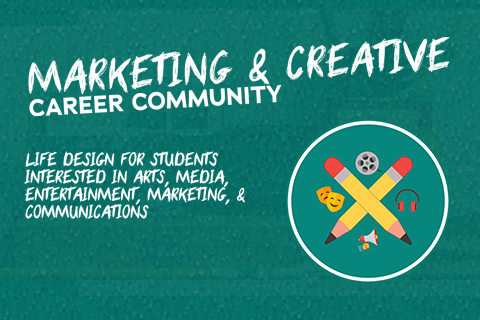Explore a career in Dance, Music, Theater, Television & Film.
The performing arts field focuses on using the body, an instrument, or voice to convey messages and emotions. This can include dance and movement, music creation and performance, and acting and technical theater. Professionals in this field spend much of their time training, practicing, and collaborating with other artists toward the final performance product.
Organizations that hire performers include:
- Professional orchestras, operas, and military bands
- Dance and theater companies
- Film, television, and media
- Audiobook and voice-acting industries
- Schools, universities, and museums
- Popular music groups or individuals (back-up singers/dancers/musicians)
- Other amusement and recreation industries
Employment Opportunities
A career in artistic performance has a unique application process in that it mainly relies upon auditioning and is highly competitive. While personal talents will shine through during auditions, competitions, and performances, it is also important to develop an online portfolio of previous work with video and audio files as you create your brand. Students should consider joining their respective artist union to expand networks, learn of opportunities, and continue to practice their craft over a long period of time. For those interested in solo performance careers or joining the film and television industry, getting a talent manager or belonging to an agency can help speed up the process for finding opportunities and jobs.
-
Successful candidates have:
- Advanced technical training in specific performance medium
- Performance and audition experience
- Patience, persistence, and flexibility
- Personal branding skills
- Portfolio of work (digital copies)
- Professional headshots
- Knowledge of performance industry and current trends
- Networking and relationship development skills
-
Hiring cycle:
- Internship Cycle – Internships do not exist for performing positions. Instead, the traditional route is using summer festivals to receive further training and performance opportunities. Since these careers heavily rely on performing, building a resume showing your performance experience (paid or not) is crucial.
- Job Cycle – On-demand, heavy auditioning in the spring. Please note: Sometimes it takes a while before something sticks. It is not uncommon for performers to take multiple auditions and not be selected. Usually performers continue working in other positions for stability while doing an audition circuit.
- Freelance Work – It is quite common in the performing arts to gig and freelance – something that usually starts part-time and could expand to full-time. Being a field that is highly dependent on who you know, students should build their portfolio of experiences and make connections with professionals. In addition to their artistic skills, freelancers must also build business knowledge as they are, technically, running their own small business. Knowledge of business types, budgeting, marketing, and contracts can ensure that you are properly set up and can claim things appropriately on taxes. Without belonging to a large organization, freelancers also need to turn to other groups, such as unions, for things such as health insurance and retirement options.















